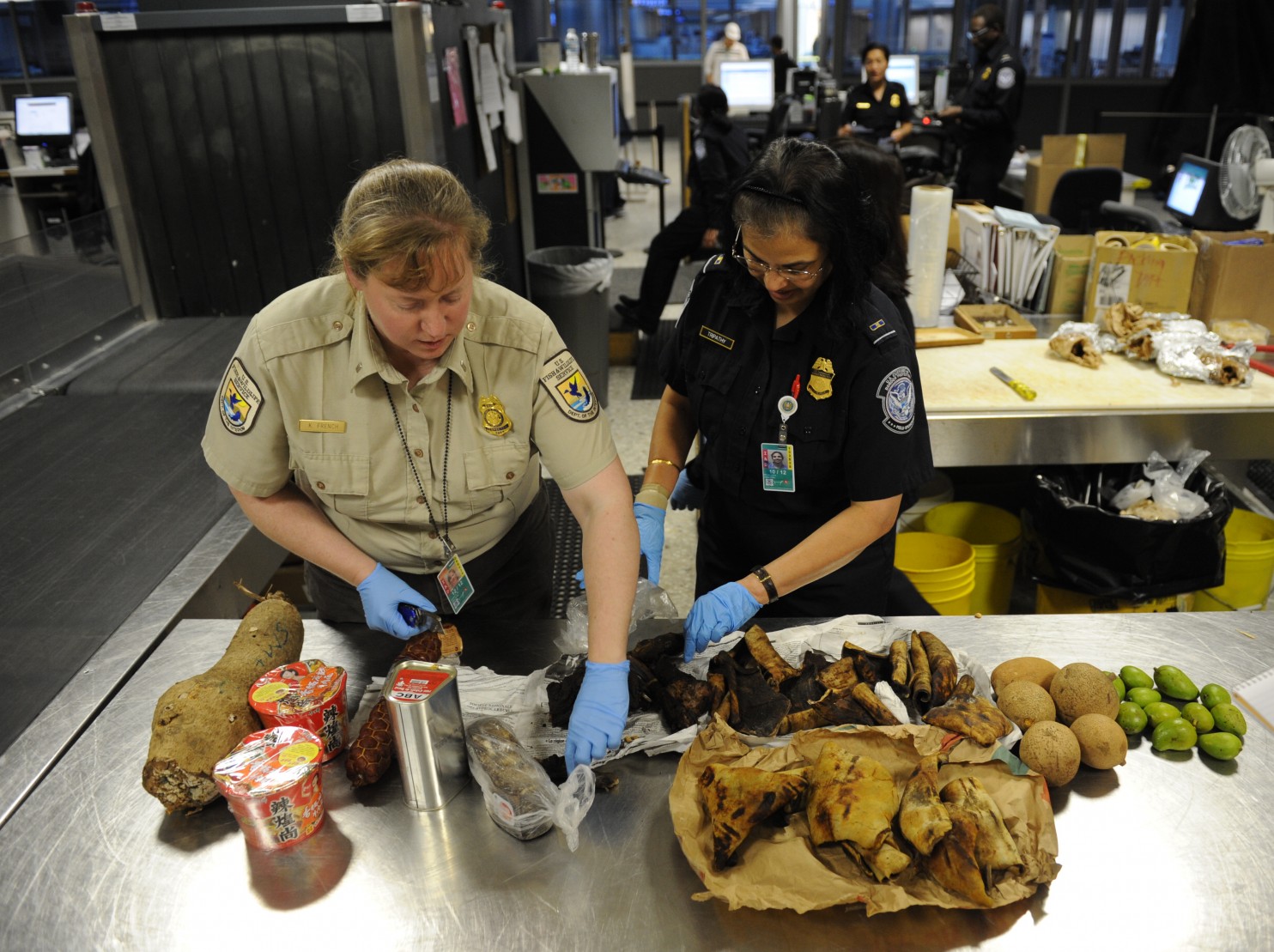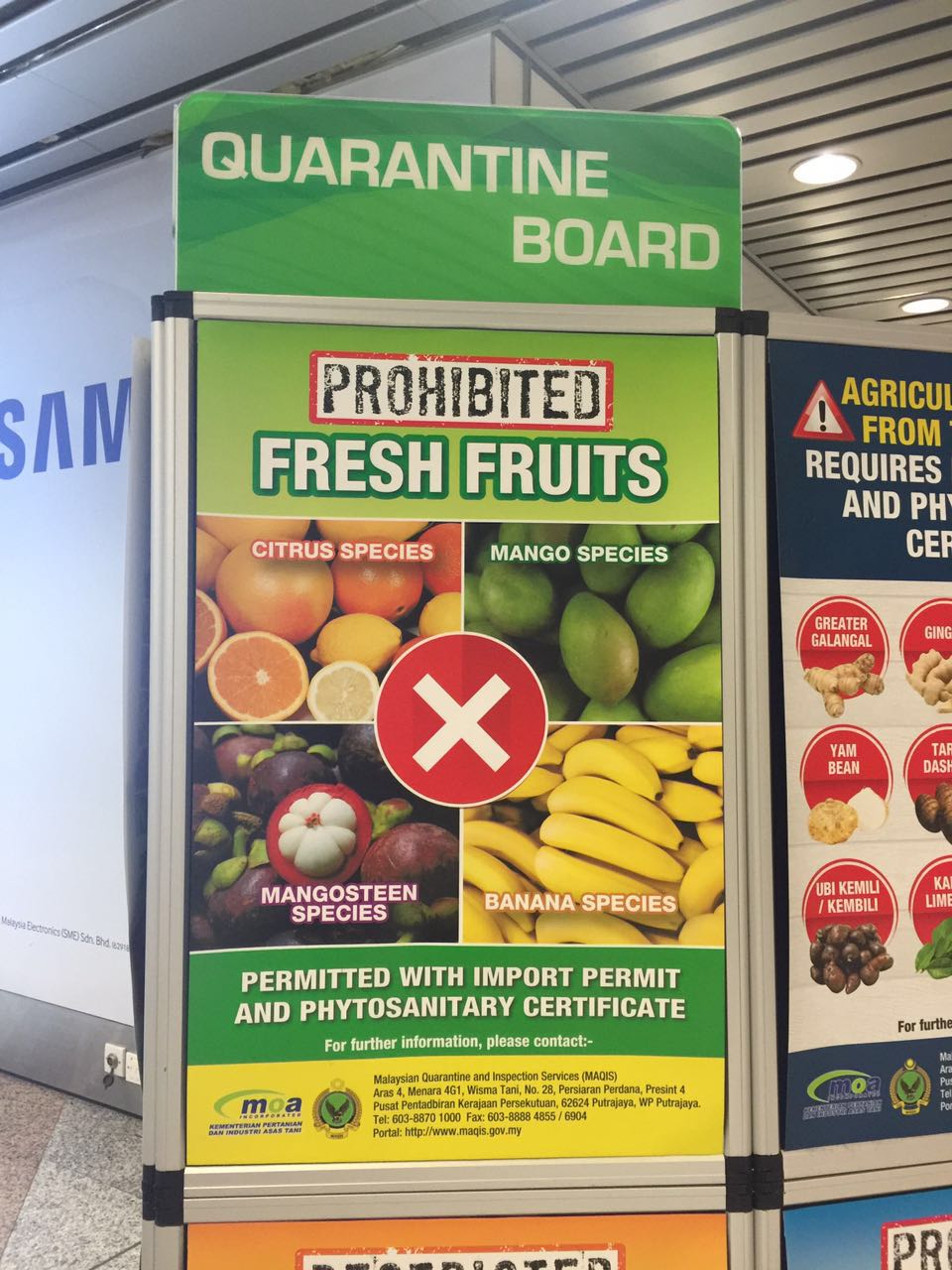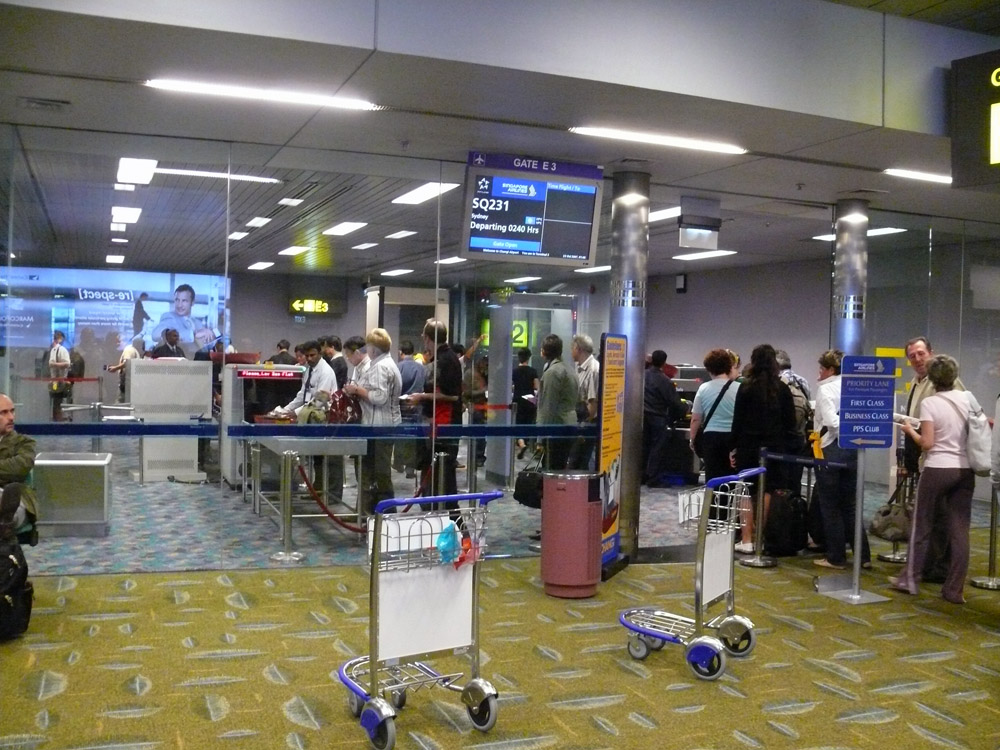How To Know If You Should Declare Your Food Items When You're Bringing Them Overseas
It could differ between countries.
Going through airport security can be time-consuming, even more so if you get held back at a checkpoint for carrying food items that have not been declared or are prohibited from bringing into a country you've just arrived at
At best, your foodstuff could end up getting thrown in the trash.
In more serious cases, failure to declare your food items might result in additional screening and/or hefty fines and penalties, especially if they are found to be banned from a country as that could be considered smuggling.
First things first, why are passengers required by law to declare the food items they are bringing onboard and into a particular country they are travelling to?
While pre-packaged and processed foods are generally admissible, some countries may place restrictions, quarantines, or additional certification when it comes to bringing in fresh food such as fruits, meats, or other agricultural products depending on the region or country you are travelling from.
According to the US Customs and Borders Protection, restrictions on food imports are placed on these products "to protect community health, preserve the environment, and prevent the introduction of devastating diseases to domestic plants and animals".
Those travelling to countries like the US and Canada are required to declare all food products, while other countries like Malaysia, Singapore, and Thailand only require you to declare your goods if it's on the restricted or banned list
If you are unsure about the food products you are bringing in, the best course of action is to speak to a customs officer and have it declared anyway. In the event that the food items are indeed banned or restricted, they will be seized and/or destroyed and no further action will be taken against you.
The condition for declaring foodstuff may differ between countries, as well as the list of admissible and - in specific cases - restricted or banned food items. Here are some examples:
1. Malaysia
Under the provision of the Customs Act 1967, travellers entering Malaysia are required to declare all dutiable or prohibited goods in their possession. In the case of bringing in food and drink, duty exemption only applies for alcoholic beverages (e.g. wine, spirit, malt, liquor) not exceeding 1 litre and prepared food with a total value that does not exceed RM75.
Most foodstuff are generally admissible aside from those outlined in Quarantine Boards upon arrival in Malaysia. Fresh fruits like mangoes, mangosteens, bananas, as well as citrus fruits like oranges, limes, and lemons are not permitted unless you have an import permit and phytosanitary certificate.
At the time of writing, several agricultural products from Thailand including ginger, turmeric (kunyit), potato, yam bean, taro, sweet potato, lemongrass, kaffir leaf, ground nuts, bird's eye chillies (cili padi), and greater galangal (lengkuas) are also not permitted unless you have an import permit and phytosanitary certificate.
Source: Royal Malaysian Customs Exemption
2. Singapore
Travellers are advised to check the list of food products and personal allowances before travelling to Singapore. Here is the List of Food and Food Products Allowed into Singapore for personal consumption:
(a) Meat items (maximum of 5kg)
- Beef from Argentina, Australia, Belgium, Denmark, Finland, France, Japan, the Netherlands, New Zealand, Sweden, Uruguay, and USA.
- Mutton from Argentina, Australia, Belgium, Canada, Denmark, Ireland, New Zealand, Switzerland, The Netherlands, Uruguay, United Kingdom, and USA.
- Pork from Australia, Austria, Belgium, Canada, Chile, Denmark, Finland, France, Germany, Hungary, Ireland, Italy, Japan, Mexico, The Netherlands, New Zealand, Spain, Sweden, Switzerland, United Kingdom, and USA.
- Poultry (chicken) from Argentina, Australia, Belgium, Brazil, Denmark, Ireland, New Zealand, and Switzerland.
Note: Meat products from Malaysia and other Southeast Asian countries are prohibited from being brought into Singapore.
(b) Seafood items
- Fish products (max. 5kg) from all countries and regions.
- Live or frozen oysters (max. 5kg) from Australia, Canada, France, Ireland, New Zealand, The Netherlands, United Kingdom, and USA.
- Frozen cooked crabmeat and frozen cooked prawn meat (max. 2kg) from all countries and regions
(c) Fresh fruits and vegetables from all countries and regions are admissible, provided they are in small, reasonable quantities. However, a phytosanitary certificate from the country's competent authority is required for fresh fruits and vegetables from Mexico and the South America.
(d) Eggs
- Hen eggs only, with a maximum of 30 eggs, from Australia, New Zealand, and Sweden.
(e) Processed food items
- All food products excluding meat, seafood, fresh fruits and vegetables from all countries and regions, with a maximum of 5kg or 5 litres, with a total value not exceeding SGD100 per person.
- Cleaned dried bird’s nest, a maximum of 1kg with no restriction in total value.
If you have doubts about the food items in your possession, you are advised to refer to the Immigration and Checkpoints Authority (ICA) officers. If you wish to bring in larger quantities of food products, you are required to register with the Agri-Food & Veterinary Authority of Singapore (AVA) and apply for an import permit.
3. Japan
Travellers who are bringing plant and plant products such as fruits, vegetables, and seeds or animals and animal-based products such as eggs, milk, and meat items are required to submit their goods for inspection at the Plant and Animal Quarantine counter with relevant documentation or certification (e.g. phytosanitary certificate) from the country the goods were purchased from.
Fruits and vegetables from certain countries or regions are actually prohibited from entry for fear of introducing pests to the agriculture in Japan, including avocados, kiwi fruits, and citrus fruits. Check out the full list of prohibited items here.
Highly-processed food items such as canned or bottled products, candy, and chocolate are not required to undergo import inspection.
Source: Embassy of Japan in Australia.
4. South Korea and Thailand
Travellers are required to declare agricultural, forest, livestock and fishery products such as animals (including meat products and leather), plants, fruits, vegetables, and live aquatic products upon arrival.
Do note that some plants and animals, as well as products made from such, may be subject to restrictions and quarantine if and when required.
Source: Korea Customs Service and Tourism Thailand.
5. Australia
Australia takes biosecurity pretty seriously, as some animals and plants as well as its products could introduce damaging pests and diseases into Australia's agriculture. Hence, all travellers are required to declare for inspection all food, plant material, and animal products on arrival in Australia to ensure that they are free of pests and diseases.
You can refer to the comprehensive list of examples here.
Source: Australian Government and Department of Agriculture and Water Resources of Australia
6. UK
The list of food items you can bring into the UK depends on whether you're travelling from within or outside the European Union (EU).
If travelling from within the EU, you are allowed to bring in any fruit, vegetables, meat, dairy, or other animal products such as fish, eggs, and honey.
However, if travelling from outside the EU, you are not permitted to bring meat, meat products, milk, dairy products, or potatoes into the UK unless you are coming from Iceland, Faroe Islands, or Greenland. Even so, there is a 10kg limit on the aforementioned items.
You are also allowed to bring up to 2kg of fruits and vegetables (except potatoes) as long as they are for personal consumption, kept in your personal luggage, and are free from signs of pests and diseases. You can also bring in eggs, egg products, and honey with a limit of 2kg in total. Fish is also permitted, as long as they are fresh and gutted, cooked, cured, dried, or smoked and weighs up to 20kg in total or only one fish, whichever is the heaviest.
Source: GOV.UK
7. US
Travellers are required to declare ALL food products upon arrival in the US.
According to the US Customs and Borders Protection website, prepared, pre-packaged, and processed foods including but not limited to condiments, oils, candy and chocolate, baked goods, cheese, canned and dried products, seafood, nuts, honey, noodles and rice as well as beverages like milk, canned juices, and packaged teas are generally admissible, as long as they do not contain meat products and/or come from a restricted country/region.
The admissibility of fruits and vegetables may be subject to approval from the Animal and Plant Health Inspection Service, while animal products and its by-products such as eggs are either prohibited or restricted from entering the United States, depending on the types of animal diseases which occur in the country of origin.
You can refer to the comprehensive list of admissible food items and conditions of restrictions here.
Source: US Customs and Borders Protection.





